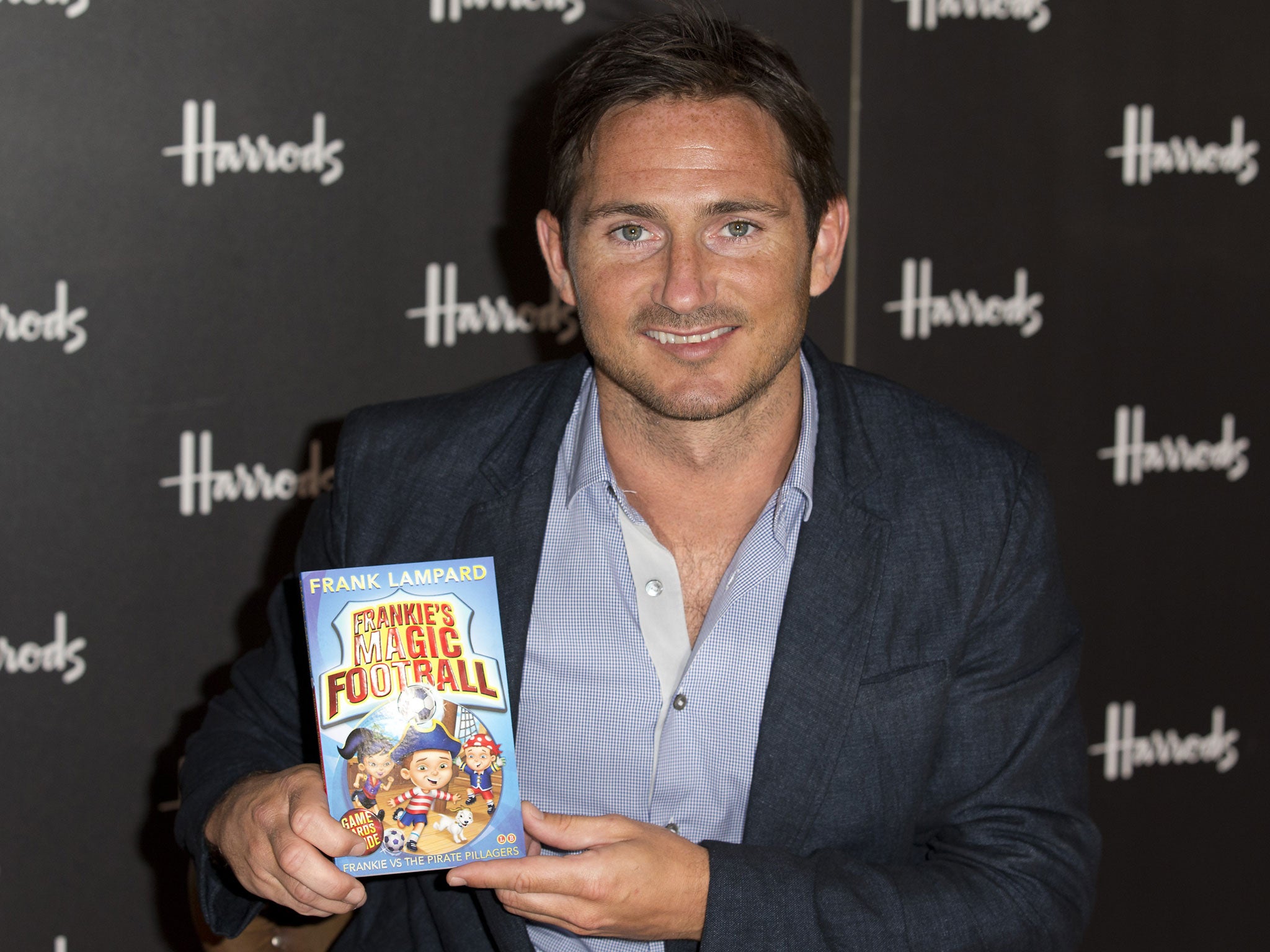Frank Lampard: He writes. He scores. So where, exactly, is the harm in that?
Frankie’s Magic Football currently stands at 3,080 in the Amazon sales chart. Is it really so terrible if publishers print books by footballers?

Your support helps us to tell the story
From reproductive rights to climate change to Big Tech, The Independent is on the ground when the story is developing. Whether it's investigating the financials of Elon Musk's pro-Trump PAC or producing our latest documentary, 'The A Word', which shines a light on the American women fighting for reproductive rights, we know how important it is to parse out the facts from the messaging.
At such a critical moment in US history, we need reporters on the ground. Your donation allows us to keep sending journalists to speak to both sides of the story.
The Independent is trusted by Americans across the entire political spectrum. And unlike many other quality news outlets, we choose not to lock Americans out of our reporting and analysis with paywalls. We believe quality journalism should be available to everyone, paid for by those who can afford it.
Your support makes all the difference.Are children’s books in terminal decline? The children’s author GP Taylor seems to think so. Having written 14 books (including Shadowmancer and the Mariah Mundi series), he should know what he’s talking about. He sees the rise of celebrity authors as one of the four horsemen of the apocalypse (literally, in the case of Katie Price, who has published the Perfect Ponies series).
It’s hard not to agree with him in part: children’s authors have both an opportunity and a responsibility that adult authors don’t have. If you write the first book a child reads on their own and they love it, you create a reader for life. The impact of a great children’s book can stay with us for ever. There’s a reason why there are currently two huge West End shows based on Roald Dahl novels. But if children don’t enjoy their early reading experiences, they may equally be put off for life: a child who hasn’t read lots of books already may not realise that a bad book is a bad book. Sometimes, they just think books aren’t for them.
The good thing about Katie Price and the footballer Frank Lampard putting their names to children’s books is that the books themselves are ghosted by people who are presumably more capable of plotting, pacing and characterisation, if less good at football and whatever it is that Katie Price does. But Taylor worries. “Bookshops have gone for the lowest common denominator. It’s not about the days of Philip Pullman and Philip Reeve, who were bringing out exciting new books and booksellers were wanting to tell people. Now it’s about … getting on the couch on a television show.”
But is it really so terrible if publishers print books by footballers? Frank Lampard isn’t costing GP Taylor his readers: Frankie’s Magic Football was published two months ago, and currently stands at 3,080 in the Amazon sales chart. It’s only sixth in the Amazon chart for children’s fiction about sport. Lampard’s England team-mate Theo Walcott also has a series of kids’ books out and, as with Lampard’s, they are designed for a very young readership. And if a child’s first book is about a boy who finds a magic football, he might appreciate the more sophisticated magic of Pullman, Reeve or Taylor when he’s a bit older.
Taylor bemoans the fact that he has three major film adaptations of his books coming out but can’t get a publishing deal, which admittedly sounds bizarre. But in April last year, he gave an interview to the Daily Mail explaining that he was turning to self-publishing to give him creative freedom and increase his percentage. Maybe children’s publishers thought they couldn’t compete with his improved terms.
The vast majority of children’s authors are not household names appearing on chat shows. They’re playground names, little-known to parents but loved by children. A book by a footballer won’t change that.
Join our commenting forum
Join thought-provoking conversations, follow other Independent readers and see their replies
Comments